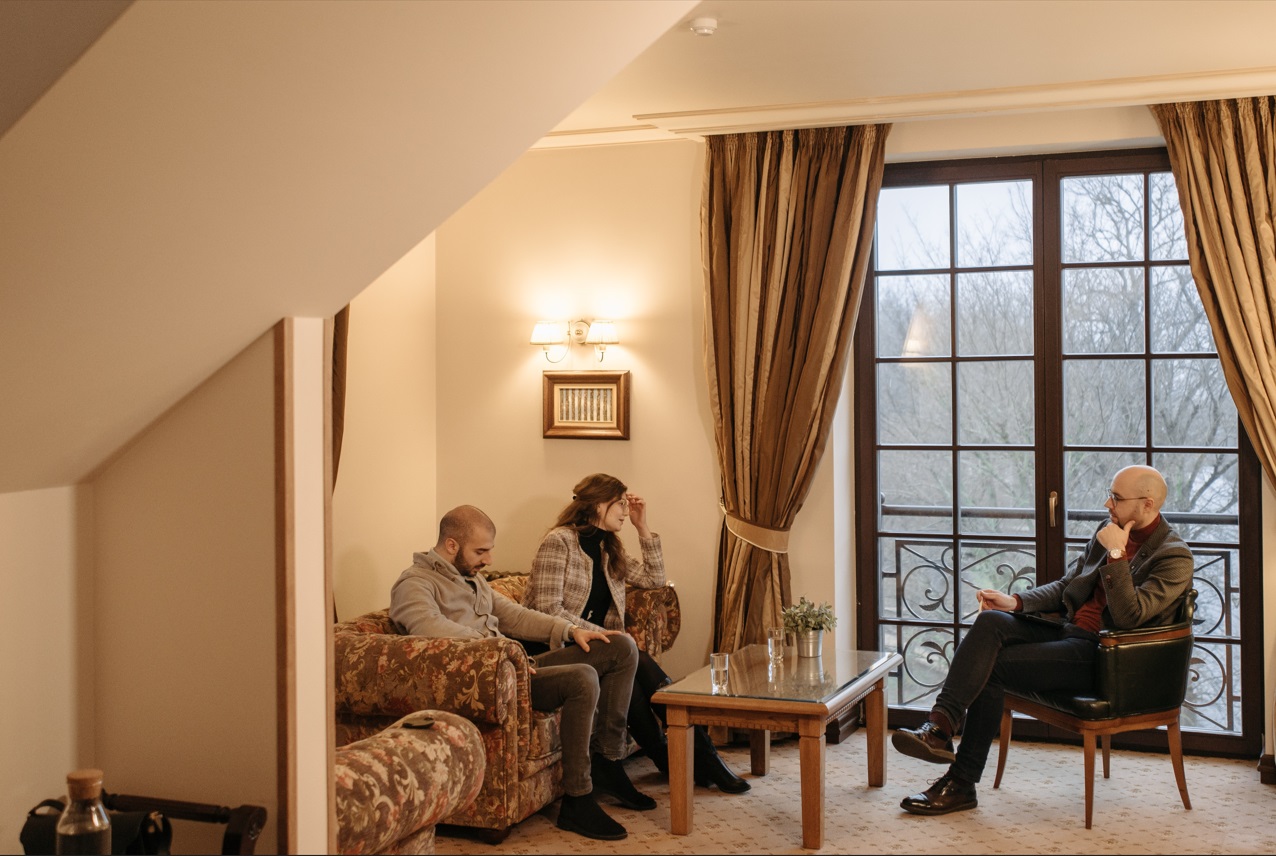Conflict is a common feature of even the happiest and most satisfying of marriages. Many arguments and disagreements can be successfully handled by the couples themselves, without the necessity of outside help. Good communication skills, mutual respect and commitment can go a long way toward overcoming problems. Where particular situations and problems threaten to erode the very foundation of the marriage, however, interventions such as DVDs, books focusing on rebuilding marriages, retreats, or marital counseling may prove helpful toward getting the marriage back on track.
When Best Efforts Fail
Married couples are sometimes faced with recurring issues that they seem quite unable to resolve, such as arguments about finances, problems with in-laws, or dealing with the fact that work consumes too much of one partner’s time, says counselors Linda and Charlie Bloom in their article, “Thinking About Getting Marriage Counseling,” on Psychology Today. After you have exhausted your personal attempts at conflict resolution, attempted compromises or simply began sweeping the issue under the rug, it may be time to look for outside help. The Blooms recommend not waiting until the damage has become near irreparable before seeking alternate resources.
Broken Communication
Some couples do not communicate well. Believe it or not, good communication skills have to be learned and honed through consistent practice. You and your spouse may have fallen into a pattern of speaking disrespectfully to each other or using hurtful words when you correspond, says Anthony J. Garascia, M.A. , in the article, “Counseling,” in ForYourMarriage.org. On the flip side, there are couples who are so consumed with their problems that they hardly speak to each other. Beyond words, communication involves body language. If you fail to make eye contact, refuse to listen or hear your partner out, or you give him the cold shoulder can only worsen the issues. Sessions at a marriage retreat or seeing a professional counselor can provide you with helpful strategies to communicate better as well as create a platform for each person to express their concerns freely.
Major Life Changes
Some of the changes that occur in life can create problems in a marriage. If one or both partners lose their jobs, the couple will find it difficult to meet their financial obligations. Having to relocate from a home or area where you developed deep connections can be difficult to adjust to. If your spouse or children become ill or if you need to take care of an aged parent are also common causes of marital strain. These situations often result in anxiety or depression, says Garascia. Even well-adjusted couples may find these cases difficult to handle, thus requiring some form of intervention.
Abuse and Neglect
Instances of abuse in a marriage can create rifts, which will take more than the skills of the couple to resolve. As a result of internal or external pressures, a person may turn to overusing alcohol or other drugs. All other forms of abuse, inclusive of gambling and domestic abuse have negative effects on the entire household, not just the affected partner. Such behaviors put a strain on the finances of the marriage, and the emotional and physical health of the relationship. Addiction to substances or practices such as gambling and infidelity usually result in the neglect of that spouse’s responsibilities to the partner and the family as a whole. In this event outside help is vitally important, suggests counselor, Dorothy Andrew, MSW, in her article, “Couple/Marriage Counseling Consideration,” on CapeFearHealthyMinds.org.




